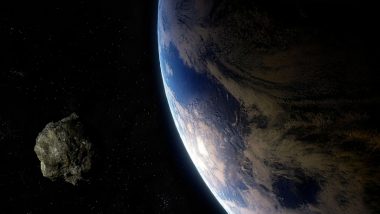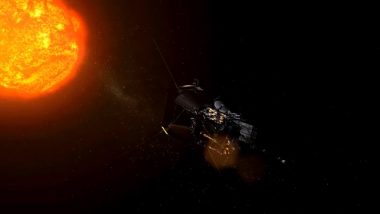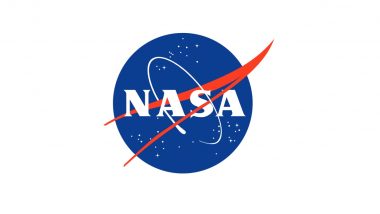A football stadium-sized asteroid will fly past Earth on July 26, prompting NASA scientists to monitor it closely due to its size and proximity. The asteroid, 2011 AM24, measures 880 feet and is expected to pass within 4 million miles (6.45 million kilometres) of our planet, approximately 17 times the distance to the moon, stated NASA's Jet Propulsion Laboratory (JPL). This massive space rock belongs to a group, known as Apollo asteroids. Asteroid 2011 AM24, particularly falls under the category of potentially hazardous asteroids (PHA). This article will shed light on the size, viewing tips and background of Asteroid 2011 AM24. Asteroid 2011 MW1, Asteroid 2024 NV1, Asteroid 2024 MH1, Asteroid 2011 AM24 and Asteroid 2024 NZ1: Know Next Five Asteroid Approaches, Dates and Sizes.
Asteroid 2011 AM24 Date
The asteroid will pass the Earth on July 26. It will make a close approach to our planet, thus giving an opportunity to monitor its potential impacts.
When and How to Watch
The asteroid is expected to pass by Earth at around 10:56 a.m. EDT on Friday, as per NASA’s JPL. Due to the distance, it will not be visible to the naked eye. However, NASA provides a virtual asteroid tracker to monitor its position in real time, and the Virtual Telescope Project will livestream the event.
Asteroid Statistics and Background
NASA estimates that over 1.3 million asteroids exist in the solar system. Asteroids, which are rocky objects that orbit the sun, are remnants from the solar system's formation around 4.6 billion years ago. 2011 AM24 is one of 18,232 Apollo-class asteroids that can cross Earth's orbit.
Additional Close Approach
On the same day, a smaller, airplane-sized asteroid named 2024 MH1 will also make a close pass by Earth at around 1:41 a.m. EDT. This 90-foot asteroid will come within 1.1 million miles ((1.80 million kilometres) of the planet.
The impending flyby of asteroid 2011 AM24 serves as critical reminders of the dynamic nature of our solar system and the importance of vigilant monitoring. The substantial size and close proximity of 2011 AM24, in particular, underscore the necessity of NASA's continuous tracking efforts for potentially hazardous asteroids. These near-Earth objects, remnants from the solar system's formation, offer valuable insights into our cosmic environment and highlight the importance of proactive measures to mitigate potential threats.
(The above story first appeared on LatestLY on Jul 26, 2024 12:15 PM IST. For more news and updates on politics, world, sports, entertainment and lifestyle, log on to our website latestly.com).













 Quickly
Quickly




















